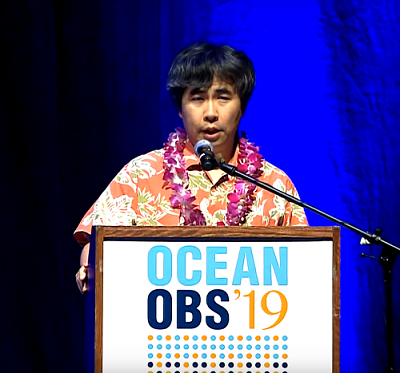Professor Sung Yong Kim, from the Department of Mechanical Engineering and KAIST Institute for Artificial Intelligence, has recently led a conference regarding a ten-year plan in the field of global marine observation. As the first Korean on the management committee, Professor Kim played an integral role at OceanObs19, a renowned international conference on global marine observation held on September 16.
OceanObs19 is distinct from conventional conferences where researchers share the results of their research. It aims to provide future directions in research fields regarding marine observation by integrating the results of previous publications and establishing a collective perspective. This will be achieved through review papers called Community White Papers, currently numbering approximately 150. The conference integrates the results of papers from over 1,500 PhD-class researchers and utilizes these as the basis for debate in general and field-specific sessions. Furthermore, the conference reviews the past ten years of results in order to plan for the next decade.
As a member of the coastal observation advisory board in the North Pacific Marine Science Organization (PICES), Professor Kim has been recognized by the global research community. This led to his nomination by multiple scientists for a position on the OceanObs19 management committee, which is composed of scholars from over 20 countries.
The conclusions of this conference suggest several research trends. First, the expansion of integrated observation platforms for a more comprehensive understanding of global climate and marine processes. Second, the identification of chemical factors for increasingly thorough marine observation. Third, the establishment of sharing services for the provision of information on marine observation to the masses, and lastly, the expansion of ocean observations to a variety of terrain such as deep sea, open sea, and coastline terrain.
Professor Kim hosted the integrated ocean observation session at the conference, which presented the integrated opinion of the co-chairs and plenary session. With approximately 400 participants in his session, Professor Kim facilitated intense debates and an amalgamation of opinions, which garnered attention from participants in the five other simultaneously running sessions.

Professor Kim commented, “In order to expand the domestic autonomous observation system infrastructure and allow the integration of electrical engineering, mechanical engineering, and environmental engineering for the development of national defense technology, our university will continue this rare but significant research.”

